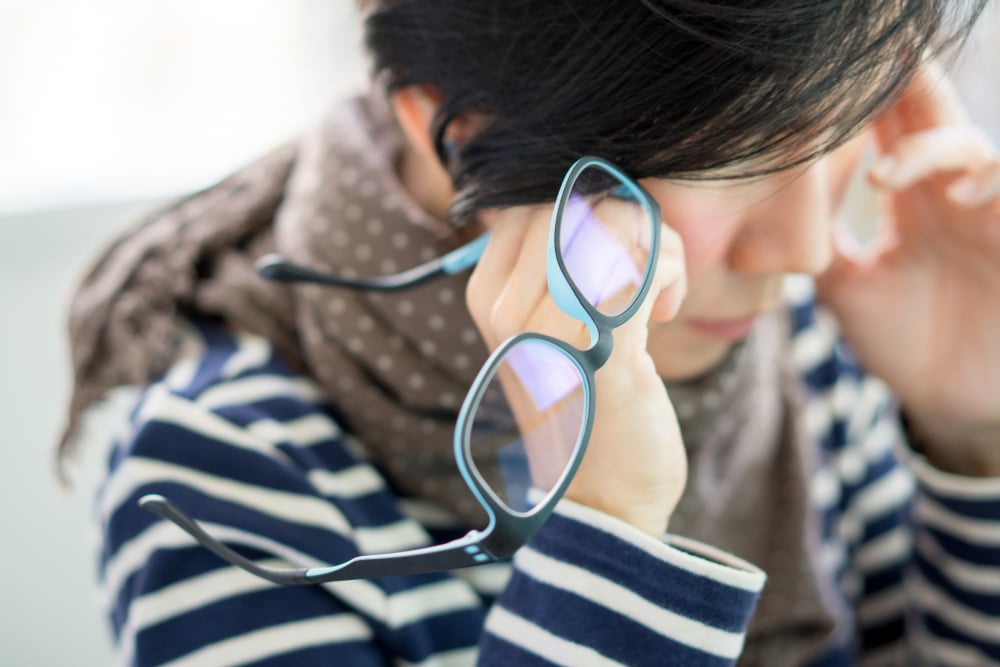Are you experiencing headaches accompanied by vision loss or blind spots? This could be an ocular migraine, also known as retinal migraine. These are rare occurrences and typically only happen in one eye. However, if you’re experiencing them in both eyes, you should seek immediate treatment. The vision issues associated with ocular migraines usually only last about an hour or less and are usually accompanied by a headache.
Migraines are painful, and vision loss—even temporarily—can be a scary experience. Here’s what you can do to prevent ocular migraines and how an eye doctor would diagnose them.
Schedule Your Appointment Today!Table of Contents
Ocular Migraine Symptoms To Look Out For
Vision loss
One of the early signs of ocular migraine is vision loss. It can occur just before the migraine or happen along with it. The vision loss might last 10-20 minutes, but some have reported vision loss that’s lasted up to an hour.
Headaches
Everyone’s experienced a headache before. However, most instances do not occur with vision loss. You may feel pain in your head at the same time as vision loss occurs or soon after.
Blind spots
If you’ve never experienced blind spots, they are partial loss of vision in your otherwise normal field of vision. Blind spots may appear as dark, fuzzy, or blurry and may occur in a single spot or as an arc of light.
Other symptoms may include:
- Nausea
- Vomiting
- Light sensitivity
- Sound sensitivity
How Ocular Migraines Are Diagnosed
Your eye doctor will diagnose ocular migraines by asking about your symptoms and providing a comprehensive eye exam. This will help rule out other conditions or causes. Your eye doctor will likely ask how long you’ve been experiencing symptoms and at what frequency. There may be neurologic testing or additional blood work or imaging needed to rule out serious conditions.
What Can Cause Ocular Migraines?
Ocular migraines are thought to occur due to blood vessels in your eyes narrowing suddenly, which restricts blood flow.
- Stress
- Caffeine
- Alcohol
- Dehydration
- Smoking
- High blood pressure
- Low blood sugar
- Certain hormonal contraception
How To Prevent Ocular Migraines
Avoiding ocular migraines can be done by keeping an eye on your diet and habits. That means staying away from excessive drinking, smoking, and stimulation from caffeine. It also helps to stay hydrated throughout the day. Wearing sunglasses on sunny days can do wonders for your eye health as well.
Ocular migraines can be the result of some medications. Consult with your doctor to see if this may be what you’re experiencing.
Book Your AppointmentConsult With a Doctor if Experiencing These Symptoms
While ocular migraines are rare and are not usually a sign of a serious underlying condition, the possibility does exist. It’s always better to be safe when it comes to your eyes and overall health. If you’re experiencing any of these symptoms or think you are, consult your eye doctor. They have the tools and knowledge to help you get a clear answer to what you’re experiencing.
If you don’t have a regular eye doctor already, Michigan Eye Institute is ready to help you. Our team of doctors ranks among the best in Michigan. Our friendly staff will welcome you in and help you feel comfortable throughout your visit. Book your appointment easily online or over the phone.
Comments are closed.



